School… then
I remember elementary school. It was my world.
My parents took great care in raising me, but they knew little about my day to day reality in school.
They met my friends and attended teacher conferences. They heard occasional tales of woe, boredom, or triumph, which punctuated a seemingly uninterrupted sequence of days between early September and mid-June.
But that was about it.
Mom was busy. She did not correct my homework. She did not help me with school projects. She did not supplement my lessons with enrichment programs designed to help me keep up or get ahead.
My job was to do well in school, and a ten second scan of my report card told my parents all they needed to know.
When I was young, it seemed that educating children was simply a matter of getting them to the school bus on time.
The public school bus.
I vaguely recall a girl who went to Catholic school. She was a non-entity to us though, because we never saw her.
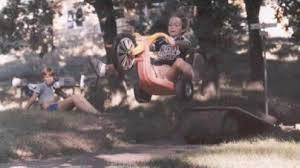 The rest of the kids in the neighborhood moved as a unit; a mass of humanity sorted by grade and thrown together.
The rest of the kids in the neighborhood moved as a unit; a mass of humanity sorted by grade and thrown together.
We saw each other in class and band. But mostly, we saw each other outside after school, where we spent endless hours riding bikes and exploring the woods before dinner.
In retrospect, I realize that this time with my peers was an integral part of my education, the Law of the Playground. Today, we call it social-emotional learning.
In worlds I visited through books, I learned about different kind of schools, but these were neither available nor desirable to me…
European families sent their children to boarding schools at a very young age. These were portrayed as Dickensian settings of mystery and trauma or magical places of privilege and adventure.
People who lived in very rural, disadvantaged, or religious communities tended to homeschool.
And there was the one-room school house of Laura Ingalls Wilder’s time. I remember feeling sorry for the children. They had to trudge through miles of snow to get to school, there was only one teacher, and the students shared desks and textbooks.
Where I lived, however, there were two choices: public school or Catholic school.
All in all, educating and socializing kids seemed a lot simpler back then.
School… now
Things are different today. Parents are more involved in their children’s school experience.
For six years, until we made a big change, my kids attended a traditional private school.
I was asked to sign off on their homework, tests, projects, and daily behavior charts; describe specific random occurrences of kindness exhibited by my son (the Core Value of the Year); and use a timer to check how long it took to complete the week’s series of math equations.
I was asked to bake a cake in the shape of one of the irregularly shaped New Jersey counties, dress a doll in the cultural ethnic attire of my ancestors, and organize craft projects for Special Snack Wednesdays around the Letter of the Week.
Kids don’t gather on the street anymore. When it comes to schools, there is precisely zero overlap in my neighborhood. Every family on my street sends its children to a different school.
My children play outside a lot, but only with each other, and with handpicked friends who are invited for “playdates.”
They are ordered to stay on our property. Every so often, I lean my head out and do a roll call to make sure they haven’t been abducted or hit by a car.
They wear hats and sun shirts so they don’t burn.
They drink a lot of water before going out so they don’t get dehydrated.
They come in for snacks because that’s what kids are trained to do. They snack.
They dig holes, wade in the stream, and catch frogs. I’m riddled with anxiety, imagining that they are covered with Lyme-infested ticks.
They don’t play outdoors nearly as much as they’d like, because they’re busy with sports and other organized activities.
Children today have so many more choices and opportunities available to them. Parents scramble to keep up with options and scheduling. But I can’t help but wonder if they’re also missing out? Raising and socializing kids today feels so intentional, and much less relaxed.
Of course I want the best for my boys, but when I’m stressed and need to make big decisions, I sometimes make mistakes. Keep reading… here’s Part 2.
 Louise Kuo Habakus is Executive Director of Fearless Parent. She has difficulty baking regularly shaped cakes, too.
Louise Kuo Habakus is Executive Director of Fearless Parent. She has difficulty baking regularly shaped cakes, too.







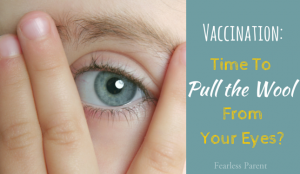
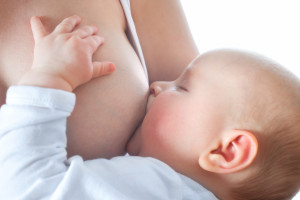
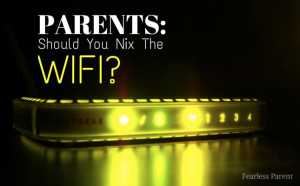
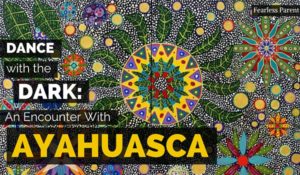

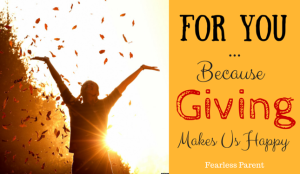
August 23, 2013 8:07 pm
Comments 0